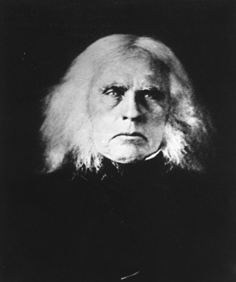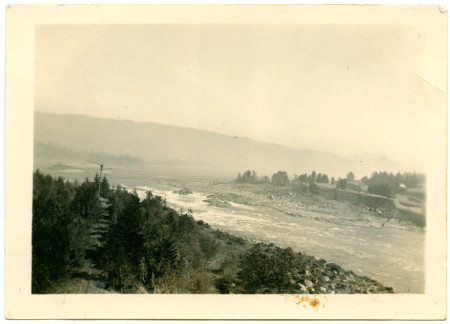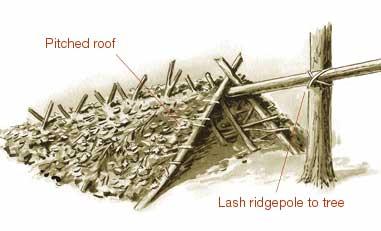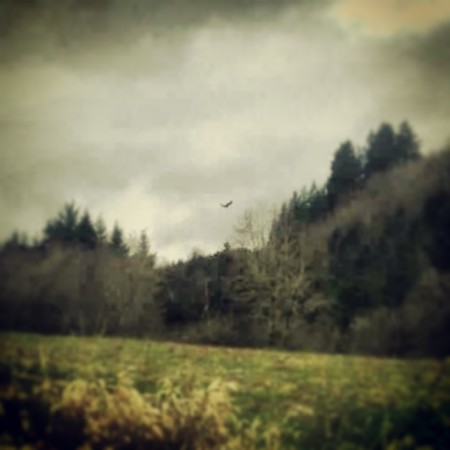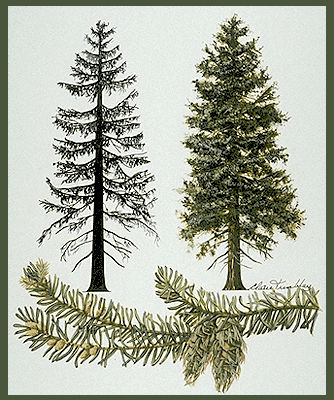David Douglas was sturdy Scotsman and a remarkable person. Before he was out of his 20′s, he had traveled from his native land to the wilderness of the 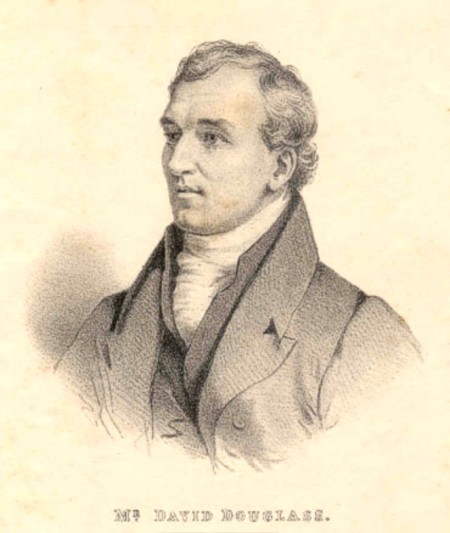 Pacific Northwest, where he made the botanical explorations that were to make him famous. It was he who gave his name to the Douglas Fir Tree.
Pacific Northwest, where he made the botanical explorations that were to make him famous. It was he who gave his name to the Douglas Fir Tree.
Douglas arrived by ship to Fort George (Astoria, OR.) in 1823. He had been commissioned as a collector for the Royal Horticulture Society to collect any plants unknown to the British Isles. The Gardens of Britain are filled with plants, trees and shrubs introduced from America by Douglas.
Douglas thought nothing of covering up to 50 miles a day on foot through the Wilderness with a 50 pound pack on his back and gun in his hand.
At Fort George, 12 miles upstream, Douglas was a little awed by his first glimpse of the man who was to be his host for the next year, Dr. John McLoughlin, chief factor of the Hudson’s Bay Co., was a vigorous giant, standing six foot four, with a regal bearing, arrogant dark eyes, and a great shock of prematurely white hair. Douglas joined McLoughlin in coming from Fort George up to Fort Vancouver. McLoughlin’s plans called for a fort 750 feet square and 20 feet high, enclosing numerous log buildings.Douglas made several trips upstream to the Cascades of the Columbia. Douglas hoped to gather a shipment of plants back with the ‘William & Ann’ when she sailed in October. He adapted quickly to the new and rugged life, sleeping at night on a bed of pine or fir boughs or under brush, carrying only a little tea in a tin and depending solely on his rifle for food.
One evening about dark while returning down river. Douglas spotted a a column of smoke rising in the forest near the river bank. Thinking it was a camp of voyageurs, or Canadian boatmen, he landed to join them. He failed to realize his mistake, until he found himself surrounded with more than a hundred braves; he had stumbled on a large Indian encampment.
Fortunately, for Douglas, had met their leader, Chief Cockqua, at Fort Vancouver and the Chief invited him to join their feast. They were eating Sturgeon, a fish weighing five hundred punds, which the had cut up and were roasting in the fires. Between sign language and the few English words that Cockqua knew, Douglas was able to carry on a conversation of sorts, but though the chief appeared friendly, the others watched Douglas suspiciously.
He learned that Cockqua’s braves were preparing for war with the tribe across the river and after the feast almost 300 warriors began to dance around the camp fires, leaping and goading themselves into a frenzy with their keening Death Songs. As the excitement mounted, from time to time a brave would dash intio the light of the Chief’s fire and shake his weapons threateningly in Douglas’ face. As Cockqua sat impassively studying his visitor.
Finally, when many of the braves had dropped with exhaustion, Cockqua announced that it was time to retire and that if Douglas was afraid he could spend the night in his tent. Douglas suspected this was a test also and knowing the Chief’s tent would be full of fleas, he refused. With a nod of satisfaction Cockqua motioned to one of the Indians to throw Douglas a skin blanket.
Douglas was aware of the people watching him as he went about his preparations for the night. He built a bough shelter, lit a small fire, then opening his vasculum he took out a number of plant specimens and with great ceremony arranged them in a circle around his lodge as though they were a protective totem.The people looked puzzled but seemed to understand. No one bothered him that night, but in the morning it was plain Cockqua was not yet ready to let Douglas leave. As a part of their preparations for battle, the Braves staged an archery contest. When one Brave had distinguished himself above all the other, Cockqua motioned that he now wanted Douglas to compete with the Brave. A target was set upon a rock and Douglas hit it with the first shot from his gun. Unimpressed, the grinning Brave did the same with his arrow. Next a target was suspended by a thong from a limb. Douglas hit this too and so did the Brave.
Just then a Hawk flew overhead. Douglas raised his gun to his shoulder, there was a burst of feathers and the Hawk dropped to the ground. Beside him, the Brave grunted as though he had been kicked.
Cockqua smiled enigmatically, refusing to show whether or not he was impressed. He seized a high-crowned hat from one of the people and threw it into the air as though daring Douglas to repeat the feat. Douglas’ shot ripped away the entire crown of the hat. Cockqua picked up the hat, stared at it in amazement, then shoved it down over the owners head so far that his entire head came through. The People seemed to find this very amusing.
‘ The Grass Man is a Great Chief. The Grass Man is a Medicine Man like the Great White Eagle,” Cockqua told everyone.
The People did not attempt to detain Douglas further and soon the title, Grass Man, had spread everywhere along the River. Just as the practical Natives could see no reason for McLoughlin to measure the River, they could see no reason for a man to collect plants he could not eat or smoke, so they concluded that this also had something to do with magical powers.
-Retold by Jim Atwell from his book Columbia River Gorge History Volume One (out of print)
